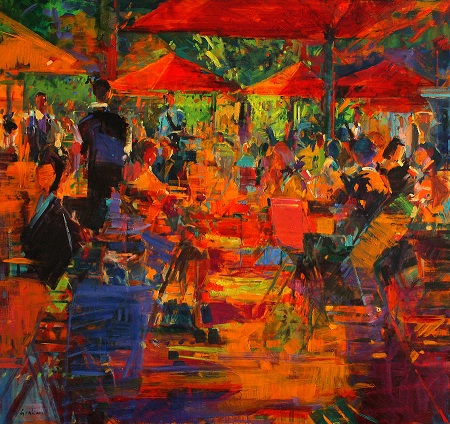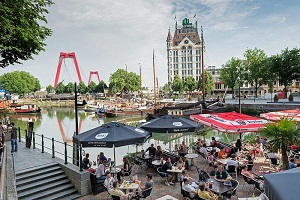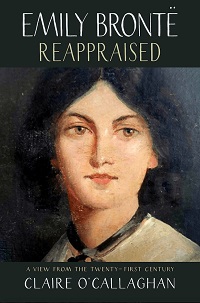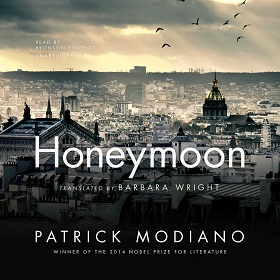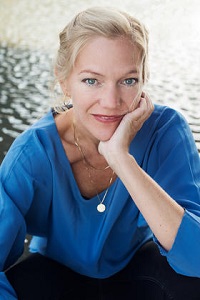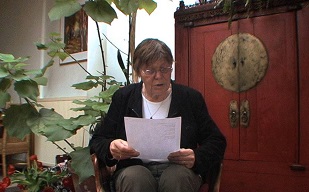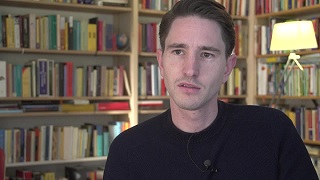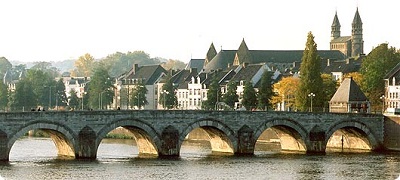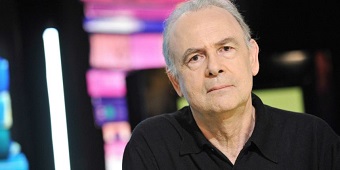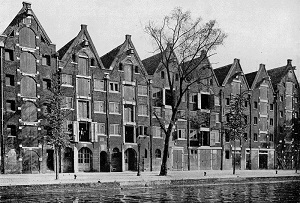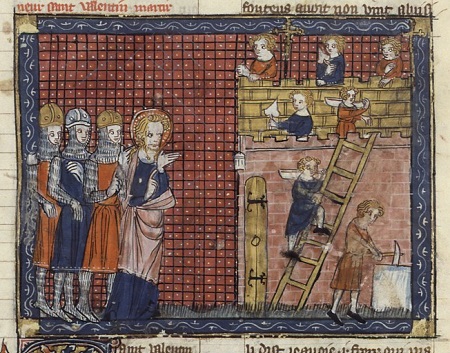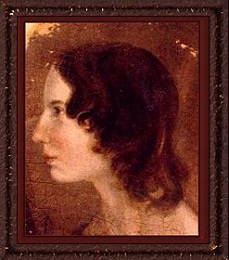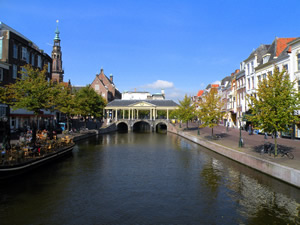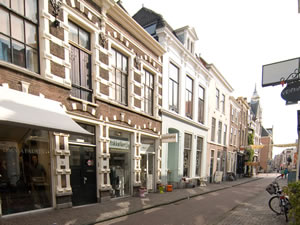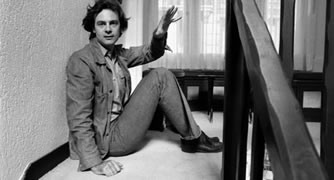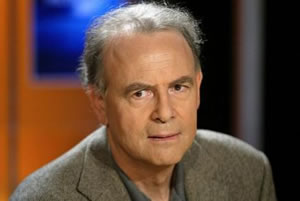Dolce far niente
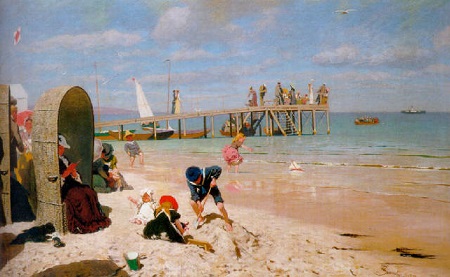
Summer (a love poem)
I wanted to be sure this was our island
so we could walk between the long stars by the sea
though your hips are slight and caught in the air
like a moth at the end of a river around my arms
I am unable to understand the sun your dizzy spells
when you form a hand around me on the sand
I offer you my terrible sanity
the eternal voice that keeps me from reaching you
though we are close to each other every autumn
I feel the desperation of a giant freezing in cement
when I touch the door you’re pressed against
the color of your letter that reminds me of flamingos
isn’t that what you mean?
the pleasure of hands and
lips wetter than the ocean
or the brilliant pain of
breathless teeth in a
turbulent dream on a roof
while I thought of nothing
else except you against
the sky as I unfolded you
like my very life a liquid
signal of enormous love we
invented like a comet that
splits the air between us!
the earth looks shiny wrapped in steam and ermine
tired of us perspiring at every chance on the floor
below I bring you an ash tray out of love for the
ice palace because it is the end of summer the end
of the sun because you are in season like a blue
rug you are my favorite violin when you sit and
peel my eyes with your great surfaces seem intimate
when we merely touch the thread of life and kiss

Harlem, New York, de geboorteplaats van Frank Lima
De Engelse dichteres en schrijfster Emily Brontë werd geboren in Thornton in Yorkshire op 30 juli 1818. Zie ook alle tags voor Emily Brontë op dit blog.
Come, Walk With Me
Come, walk with me,
There’s only thee
To bless my spirit now –
We used to love on winter nights
To wander through the snow;
Can we not woo back old delights?
The clouds rush dark and wild
They fleck with shade our mountain heights
The same as long ago
And on the horizon rest at last
In looming masses piled;
While moonbeams flash and fly so fast
We scarce can say they smiled –
Come walk with me, come walk with me;
We were not once so few
But Death has stolen our company
As sunshine steals the dew –
He took them one by one and we
Are left the only two;
So closer would my feelings twine
Because they have no stay but thine –
‘Nay call me not – it may not be
Is human love so true?
Can Friendship’s flower droop on for years
And then revive anew?
No, though the soil be wet with tears,
How fair soe’er it grew
The vital sap once perished
Will never flow again
And surer than that dwelling dread,
The narrow dungeon of the dead
Time parts the hearts of men -‘
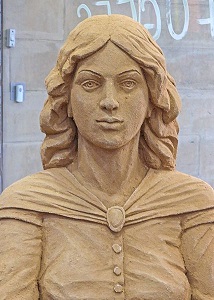
Borstbeeld in Bradford
De Franse schrijver Patrick Modiano werd geboren in Boulogne-Billancourt op 30 juli 1945. Zie ook alle tags voor Patrick Mondiano op dit blog.
Uit: The Search Warrant (Vertaald door Joanna Kilmartin)
“Like many writers before me, I believe in coincidence and, sometimes, in the novelist’s gift for clairvoyance — the word “gift” not being the right one, for it implies a kind of superiority. Clairvoyance is simply part of the profession: the essential leaps of imagination, the need to fix one’s mind on detail — to the point of obsession, in fact — so as not to lose the thread and give in to one’s natural laziness. All this tension, this cerebral exercise, may well lead in the long run to “flashes of intuition concerning events past and future”, as defined by Larousse dictionary under “clairvoyance”.
In December 1988, after reading the announcement of the search for Dora in the Paris Soir of December 1941, I had thought about it incessantly for months. The precision of certain details haunted me: “41 Boulevard Ornano, 1.55m, oval-shaped face, grey-brown eyes, grey sports jacket, maroon pullover, navy-blue skirt and hat, brown gym shoes.” And all enveloped in night, ignorance, forgetfulnes, oblivion. It seemed impossible to me that I should ever find the faintest trace of Dora Bruder. At the time, the emptiness I felt prompted me to write a novel, Honeymoon, it being as good a way as any of continuing to fix my attention on Dora Bruder, and perhaps, I told myself, of elucidating or divining something about her, a place where she had been, a detail of her life. I knew nothing about her parents, about the circumstances of her flight. All I had to go on was this: I had seen her name, BRUDER, DORA — nothing else, no date or place of birth — above that of her father — BRUDER, ERNEST, 21.5.99, Vienna. Stateless. — on the list of those who left on the convoy of 18 September 1942 for Auschwitz.
In writing Honeymoon, I had had in mind certain women I knew in the 1960s: Anne B, Bella D — the same age as Dora, in one case almost to the month — who could have shared her fate, having been in a similar situation during the Occupation, and whom she may have resembled. Today, it occurs to me that I had had to write 200 pages before I captured, unconsciously, a vague gleam of the truth.
It was a matter of a few lines: “The train had stopped at Nation. The line didn’t go any farther. Rigaud and Ingris had gone past Bastille, where they ought to have changed for the Porte Dorée. They came out of the métro into a big snowfield. [ … ] The sledge cut through several little streets to get back to the Boulevard Soult.”
These back streets lay behind the Rue de Picus and the Holy Heart of Mary, the convent from which Dora Bruder made her escape, one December evening when it had probably been snowing in Paris.
This was the only moment in the book when, without knowing it, I came close to her in time and space.”
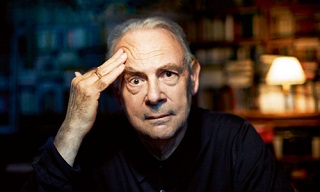
De Noorse schrijfster en scenariste Maja Lunde werd geboren in Oslo op 30 juli 1975. Zie ook alle tags voor Maja Lunde op dit blog. Zie ook alle tags voor Maja Lunde op dit blog.
Uit: The History of Bees (Vertaald door Diane Oatley)
“The tin box was empty before I was full. I stood up and put it back in the return basket from the Trade Commission. Then I jogged in place. My legs were tired, but nonetheless stiff from standing still in locked positions up there in the trees. My blood tingled; I couldn’t stand still. But it didn’t help. I took a quick look around me. Nobody from management was paying attention. I quickly lay down on the ground, just to stretch out my back. It was aching after having been bent over in the same position for a long time. I closed my eyes for a moment, tried to shut out the conversation of the other women of the crew, instead listening to how the chatter rose and fell in volume. This need to talk, all of them at the same time, where did it come from? The other women had started when they were little girls. Hour after hour of group conversations where the subject was always of the lowest common denominator and one could never really go into depth about anything. Perhaps with the exception of when the one being talked about wasn’t there. Personally I preferred one-on-one conversations. Or my own company, for that matter. At work, often the latter. At home I had Kuan, my husband. Not that we had the longest conversations, either, conversation wasn’t what held us together. Kuan’s references were here and now, he was concrete, didn’t crave knowledge, something more. But in his arms I found peace. And then we had Wei-Wen, our three-year-old. Him we could talk about.
Just as the cacophony had almost sung me to sleep, it suddenly fell silent. Everyone was quiet. I sat up. The others on the crew were facing the road. The entourage was walking down the tire ruts and towards us. They were no more than eight or nine years old. I recognized several of them from Wei-Wen’s school. All of them had been given identical work clothes, the same synthetic beige uniforms that we were wearing, and they walked towards us as quickly as their short legs could carry them. Two adult leaders kept them in line. One in front, one behind. Both of them were equipped with powerful voices that corrected the children without cease, but they did not reprimand them, giving instructions with warmth and compassion, because even though the children had not yet fully taken in where they were headed, the adults knew. The children walked hand in hand, in mismatched pairs, the tallest with the shortest, the older children taking care of the younger. An uneven gait, disorganized, but the hands held on tight as if they were glued together. Perhaps they had been given strict instructions not to let go.”
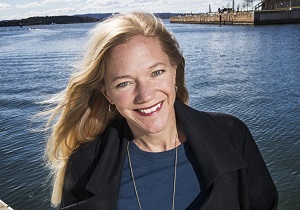
De Nederlandse dichteres Aly Freije werd geboren in Veelerveen op 30 juli 1944. Zie ook alle tags voor Aly Freije op dit blog.
Kreuzberg Berlijn
Hun graffiti trekt huizenblokken op
schopt tegen monumentale deuren
-Zwangsräumung blockieren-
ze gooien spuitbussen weg, tappen ander bier
hangen een nacht een beest uit
fabeldieren spreken
draak, griffioen, misschien een sabeltijger
ze schaffen fijne kwasten aan, bestuderen
spierbundels, haarinplant van vachten
gevorkte veren, ingekeepte snavels
de kwetsbaarheid van ogen wit
in één nacht is op een blinde muur
tot boven aan de nok
een voorstelling neergezet
bungelend aan één poot
een edelhert, een ooievaar, een haas
uitvergroot
hun spreken.
Het mist
I
Ze kreeg een bouwdoos, zette vier palen
in een gatenplaat, schoof langs de gleuven
voor- en achtergevel op hun plaats
dit was haar huis
schuren geurden met ingedikte
tractorolie en oogstverhalen
schoffels hingen schuin
tegen de zomerwind
deurklinken gingen in verzet
planken opgebroken, opengezette hokken
ze wiste de witte plekken op behang
zwakte het gissen af
naar een waarom en hoe
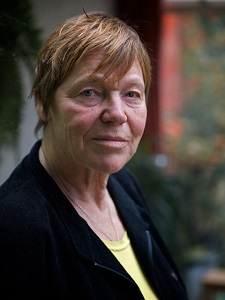
Onafhankelijk van geboortedata
De Nederlandse schrijver Martijn Simons werd geboren in 1985 en groeide op in Woerden. Zie ook alle tags voor Marijn Simons op dit blog.
Uit: Ik heet Julius
“Nog altijd dat zenuwachtige gekietel. Een warme, vochtige adem. Ik kneep mijn ogen stijf dicht om de beelden van vannacht te verdrijven, van de meisjes, en deed mijn best zo stil mogelijk te blijven liggen. Ze kietelde me echt, Nore, ze deed wat ze ’s ochtends zo vaak deed, gaf kleine likjes, speldenprikjes in mijn oorschelp, en als ik me niet zo… niet zó voelde, had ik er alles aan gedaan om het moment te rekken. Want, jongen, ik hield ervan, die sluimerende seconden tussen slapen en waken, het eiland en de rest van de wereld op veilige afstand. Ik wist waar ze mee bezig was en hoe het zou eindigen, haar warme adem en het geluid van haar lippen, zo dichtbij. Ze gaf me een por tussen mijn ribben als ze vond dat het lang genoeg geduurd had, als ik in actie moest komen. Dan draaide ik me langzaam op mijn zij, als een oud beest, mijn ogen nog altijd dicht, kuste haar en kwam overeind. Klom boven op haar. Hoe ze daar lag, haar ogen nog klein van de nacht, maar al warm en schitterend. Ik drukte mijn neus in haar haar en snoof, kuste haar nog eens, hield mijn ogen open terwijl zij die van haar traag sloot.
Speelse Nore, vrolijke pup. Hoe erg vond ik het als ze het juist níet deed en gewoon opstond, de kamer verliet en ging zitten op de veranda die over de heuvel uitkeek, met een kop thee en een stuk fruit, en de dag langzaam over zich heen liet komen, de geluiden uit de struiken absorbeerde en bedacht wat er gedaan moest worden, om vervolgens tot de heerlijke conclusie te komen dat er die dag niets was wat haar onmiddellijke aandacht vroeg. Want iemand als Nore had nog geen verplichtingen. Niets behalve school, niets behalve ouders die al hun energie staken in het uitbaten van het luxueuze vakantieresort dat zijn naam dankte aan die voddenbalen van vogels die af en toe neerstreken in de branding of op het strand, en waarvan het logo een goedlachse en met klare lijn getekende stripversie van deze vis verslindende vogelsoort was. Pelican was een ordinaire toeristenfuik, waar die hele Jan Thielbaai mee was volgegooid en die week in, week uit, elke maand van het jaar, vol zat met Hollanders en de laatste jaren steeds vaker met Russen.”
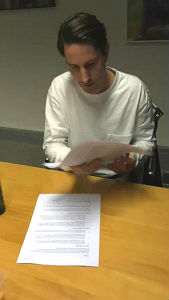
Zie voor meer schrijvers van de 30e juli ook mijn blog van 30 juli 2017 en ook mijn blog van 30 juli 2016 deel 1 en eveneens deel 2.

